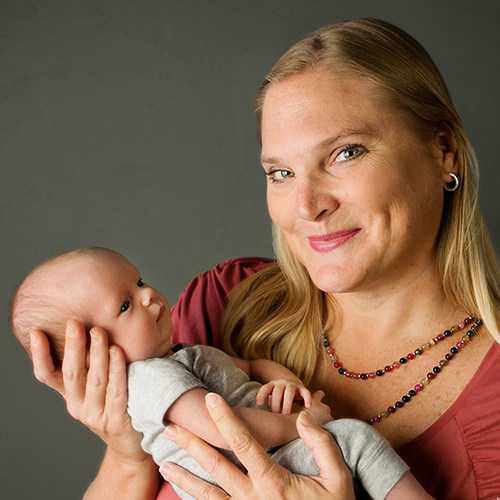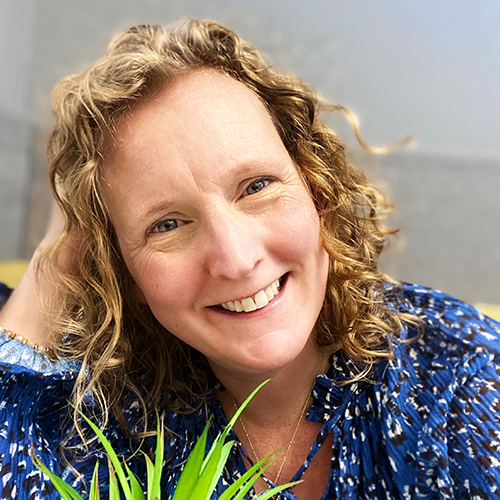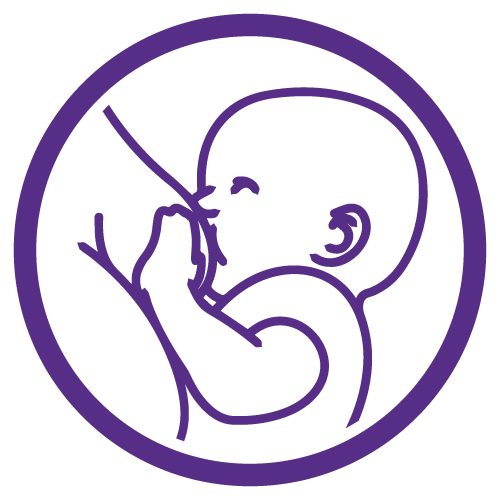 Crying, Colic, Fussy Baby Online Course(s) & Continuing Education
Crying, Colic, Fussy Baby Online Course(s) & Continuing Education
Access the latest clinical skills and research for Crying, Colic, Fussy Baby for Lactation & Breastfeeding professional training. These Crying, Colic, Fussy Baby online courses provide practice-changing skills and valuable perspectives from leading global experts. This Crying, Colic, Fussy Baby education has been accredited for a variety of CEUs / CERPs and can be accessed on-demand, at your own pace.

Babies Cry to Communicate, Not to Manipulate... Non-Medical Reasons for Crying: An Anthropological Approach

Katrien Nauwelaerts graduated as a prehistoric archaeologist in 2005. She's the mother of three breastfed children and the administrator of the Dutch breastfeeding-website Borstvoeding Aardig, https://borstvoeding.aardig.be. Katrien worked as a volunteer breastfeeding-counsellor, provincial coordinator and training manager for the Belgian breastfeeding organisation Borstvoeding vzw between 2010-2014. Up tot 2018 she was the founder and president of Aardig Leven vzw, a non profit ecological organisation. In 2013 she became an IBCLC. Since 2013 she's working as a lactation consultant at her own private practice Borstvoeding Aardig. She became a nutritionist and a herborist in 2014. Katrien shares her experiences and knowledge on lactation consulting as a public speaker since 2014.
Topic: Breastfeeding and The Use Of Herbs - [View Abstract]
Topic: Young Mothers and Breastfeeding in Belgium - [View Abstract]
There is scientific research that says that breastfeeding duration shortens when parents experience their baby as a baby who cries a lot.
There are all kinds of medical reasons why a baby is crying. Crying is a way of communication for a baby. It's a cry for help.
But what if there are no obvious medical reasons for a baby's crying behavior?
This lecture explains sociological and anthropological factors that can influence crying behavior in babies.
Sometimes parents have false expectations about parenting and baby behavior. Sometimes cultural assumptions make parents believe they have a crying baby when they actually haven't. And some cultural or anthropological parameters can strengthen the crying behaviour in a baby. Learn more about normal newborn crying behaviour and how to help parents understand their newborn.

View Details / Enroll


Melissa Cole is a board-certified lactation consultant, neonatal oral-motor assessment professional and clinical herbalist in private practice. Melissa is passionate about providing comprehensive, holistic lactation support and improving the level of clinical lactation skills for health professional. She enjoys teaching, researching and writing about wellness and lactation-related topics. Her bachelor’s degree is in maternal/child health and lactation and her master’s degree is in therapeutic herbalism. Before pursuing her current path, Melissa’s background was in education and cultural arts, which has served her well in her work as a lactation consultant and healthcare educator. She loves living, working and playing in the beautiful Pacific Northwest with her 3 children.
Topic: Beyond Fenugreek: An Individualized Approach to Dietary and Herbal Galactagogues - [View Abstract]
Topic: Beyond the Basics of Latch: Support Strategies for Helping Babies when the Basics Aren’t Enough - [View Abstract]
Topic: Common Infant Digestive Health Concerns and Useful Support Strategies - [View Abstract]
Topic: Connection and Care: Virtual Support for Tongue-Tied Infants - [View Abstract]
Topic: Feeding is Movement: Activities for Supporting Optimal Infant Oral Function - [View Abstract]
Topic: Infant Gut Health: Common Concerns and Useful Support Strategies - [View Abstract]
Topic: Infant Oral Assessment: Exploring Anatomy and Function Beyond the Frenulum - [View Abstract]
Topic: Low Milk Production Detective Work: Assessment and Care Plan Considerations - [View Abstract]
Topic: New Thoughts on Infant Pre and Post-Frenotomy Care - [View Abstract]
Topic: Placenta Medicine as a Galactogogue: Tradition or Trend? - [View Abstract]
Topic: Thinking Critically About the Use of Clinical Lactation Tools - [View Abstract]
Topic: Will It Hurt? Frenotomy Aftercare Strategies to Optimize Healing Outcomes for the Newborn - [View Abstract]
This session will focus on common concerns regarding infant digestive health and useful support strategies that care providers can incorporate into their work with families. We will discuss what's normal and what's not in regard to stooling, spit up/reflux, colic/fussiness, food sensitivities, and more. Many parents are coping with babies that are uncomfortable and unhappy due to digestive health concerns. Dealing with a fussy, uncomfortable baby is emotionally and physically draining. Having a basic understanding of infant gut health and care strategies can be useful tools for any type of practitioner working with infants.

View Details / Enroll

View Details / Enroll

Interoception: Beyond the Homunculus....The Real Sixth Sense and Its Primary Function as Sensory Input to the Autonomic Nervous System

Michelle has been a pediatric neurodevelopmental Occupational therapist specializing in precrawling infants for over 26 years. She has specialty certifications and training in lactation, manual therapy, and pre and peri natal psychology. Michelle has specialized in optimal cranial nerve function and oral restrictions, with an emphasis on infant movement, innate biological imperatives and human potential, providing novel curriculums, support and resources for both professionals and parents. She enjoys collaborating and working in teams for babies and families going through the tethered oral tissues release process.
Topic: Breastfeeding and Cranial Nerve Dysfunction – the what, who and why of Cranial Nerve Dysfunction in the newborn to precrawling baby - [View Abstract]
Topic: Compensatory vs Novel Movements: 3 Keys for Babies With Tongue, Lip and Buccal Restrictions - [View Abstract]
Topic: Interoception: Beyond the Homunculus....The Real Sixth Sense and Its Primary Function as Sensory Input to the Autonomic Nervous System - [View Abstract]
Topic: The Vagus Nerve: Branchial Motor / Special Visceral Efferents: The Pharynx, Larynx, Soft Palate and one tiny tongue muscle - [View Abstract]
Topic: TummyTime!™ : A Therapeutic Strategy for Parents and Babies - [View Abstract]
Interoception is a term used to describe our nervous system's awareness of the sensations from the gastrointestinal and visceral system, as well as the primary sensory part/input to baby's Autonomic Nervous System. ANS function and regulation underlay all automatic processes of the body, from heart beat to breastfeeding and digestion function, as well as maintaining a calm state in order to engage in social interaction or to transition easily in and out of sleep. More simply put, interoception is "feelings from the body". In addition to visceral information, interoceptive pathways carry information related to affective touch, itch, temperature and pain and are delivered to a separate area of the brain, the insular cortex, which also contains a map of the body, similar to the well known homunculus. Interception plays a large role in dynamic equilibrium and autonomic regulation of tissues of the body. Interoceptive information and the processing is the basis of all important activity to optimize energy utilization. This system is often compromised in babies who present with complex oral dysfunction, tethered oral tissues, postural asymmetries, fussiness, gas, reflux or other dysregulation in function. How babies feel is mirrored in how they function, compromised function equals compromised interoceptive processing. This talk covers the basics of this system and practical clinical applications for precrawling babies to optimize neurodevelopment and breastfeeding abilities.

View Details / Enroll

The Crying Curve and the Impact on Postpartum and Breastfeeding

A love for babies fueled Kimberly's 20+ year career serving families in the postpartum time frame. With a passion for nurturing new parents, she trains doulas and educators with CAPPA to support and educate for a strong beginning of bonding and connection. She loves teaching expectant families to have a smooth transition to new baby life through the Providence Healthcare System in Portland, OR. She began as a postpartum doula, then quickly added breastfeeding and new parent classes to help parents from the very beginning, and then became an IBCLC to meet their bigger challenges. She owns ABC Doula & Newborn Care in Portland, OR, is the mother of 2 grown kids, and resides in Phoenix near her parents. Like many other baby whisperers, Kimberly has honed skills for listening and responding to babies that parents can quickly learn to understand and interpret their tiny humans. When she sees parents struggling, and especially with the most fussy of babies, her heart hopes that all parents could be given the tools to compassionately support their little ones, and learn how to meet their needs, which creates more confidence in themselves in their new roles as well.
Topic: Understanding Infant Crying - [View Abstract]
The Crying Curve is an evidence-based pattern of crying that begins at about 42 weeks of gestation (2 weeks of extrauterine life), peaks at 6-8 weeks of age, and sharply declines by 12-15 weeks. As many as 15 different studies have concluded that this pattern is common across infants of all cultures, gestational ages (based on a 40-week gestation), and parenting styles—and the applications are many in the early parenting world. How can parents use this pattern to help them navigate breastfeeding? How can they gather their support people, family or village to maximize positive relationships and get the support they crave? How can they utilize it to help assess their newborn and understand what is needed for their specific situation? How much crying is too much crying? Lactation consultants, postpartum doulas, and other postpartum professionals who possess this information are well positioned to help to educate parents on how to best approach their postpartum recovery period, as well as navigate the ups and downs of breastfeeding and early newborn sleep. This session will aim to explain and apply the Crying Curve in multiple ways to support and guide the newborn family.


Anna Le Grange is an International Board Certified Lactation Consultant, Registered Pediatric Nurse, Mindfulness teacher and Author. She has worked with new families for over 20 years in a variety of clinical roles. Anna brings her passion for psychology, neuroscience and mindfulness into her lactation support work and facilitates other professionals to incorporate emotional well-being tools into their own lactation practice. Mother to 3 children, Anna breastfed her 3rd child following breast reduction surgery and experienced first-hand, the emotional challenges that so often relate to infant feeding complexities. She used her personal experiences alongside mindfulness and lactation knowledge, to create a toolbox of techniques for breastfeeding families, which she includes in her courses and book, The Mindful Breastfeeding Book. Anna believes whole-heartedly in prioritizing calm and connection within our breastfeeding support practices, both for our clients and ourselves. Anna is currently studying for a MSc in Positive Psychology at Buckingham New University and has spoken at various events including the Gold Lactation, ILactation Conference and Nurturing The Future.
Topic: Being Mindful: Case Studies of Mindfulness Tools in Clinical Lactation Practice - [View Abstract]
Topic: Breast/Chestfeeding After Breast Reduction - [View Abstract]
Topic: Working With Anxious Parents and Fussy Babies - [View Abstract]
In this talk Anna Le Grange explores the causes of anxiety in parents, reasons why babies might exhibit unsettled behavior, and the links between parents with anxiety and unsettled babies. Drawing on recent studies, she shares the latest insights on the correlation between anxiety, infant fussiness and breastfeeding outcomes. Next Anna will describe the autonomic nervous system in parents and babies and how anxiety and infant fussiness may impact both members of the dyad. In the second half of this talk Anna discusses the practical steps that lactation supporters can take when working with babies and their parents to encourage a more calm and connected feeding experience.

View Details / Enroll













